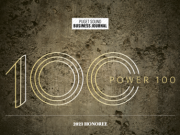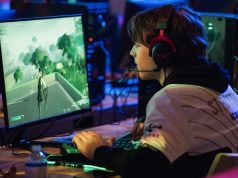by Charlene Slayton
SEATTLE — With enough computing power, Dr. David Baker, UW associate professor of biochemistry, believes he and other scientists could unlock the mysteries of structural biology. This would enable the creation of better drugs and treatments for diseases such as AIDS and malaria, and new methods of detoxifying poisonous substances in the environment.
Seattle-based Cybercamps is adding to Dr. Baker’s computing power by sharing bandwidth of more than 1,300 computers from its summer camp program. Since 1997, Cybercamps has provided children between the ages of 7-17 the opportunity to learn cutting-edge technology through a unique summer camp program.
This year, Cybercamps has added another layer to its summer program — distributive computing. Distributive computing enables vastly large computational processing projects to be broken down and spread out amongst a larger set of “idle” computers. For Cybercamps, that means when the campers aren’t using their dedicated computers for creating web pages, designing games, or programming their robots, those same computers are working to predict protein interactions in biological processes — basically solving tiny parts of three-dimensional molecular biology puzzles.
To integrate the distributive computing program into Cybercamps, Giant Campus, the parent company of Cybercamps, partnered with Brain Murmurs, a Seattle-based research and development company to create a special screen saver that runs the shared computing program.
“We are excited to be a part of such a large project,” says Kathleen Fitzgerald, the national program director for Cybercamps. “Our program continues to attract the brightest youth and it feels right to excite them about solving the world’s problems.” Kat worked with Brain Murmurs to create special educational content embedded into the screen saver to give campers an introduction to shared computing. More information about Cybercamps is at www.cybercamps.com. More information about Giant Campus is at www.giantcampus.com More information about Brain Murmurs is at www.brainmurmurs.com More information about Dr. Baker’s project, visit http://depts.washington.edu/bakerpg/
About Giant Campus, Inc.: Formed after years of success with its renowned Cybercamps summer technology camps, Giant Campus provides fun, experience-based online technology education for children, teens, and adults. The Giant Campus courseware has been taught in over 3,000 Boys and Girls Clubs across the United States touching nearly 2.5 million kids and has been used to teach more than 12,000 students throughout the state of Missouri. Our instructors have personally taught hundreds of students in countries abroad including Japan, China, Hong Kong, South Korea, and Saudi Arabia. The company’s dedication to perpetual innovation is the formula that has pushed it to the forefront of its industry. Today, Giant Campus is a three-time honoree of Washington CEO magazine’s Best Companies to Work For, winning top honors in 2000 and being a top-ten finalist in 2004 and 2005.
Web site: http://www.giantcampus.com/ [24×7]




















